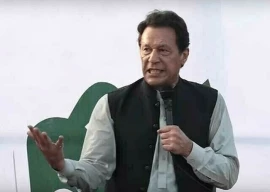
Here’s how it’s done. The crime reporter of a media outlet calls up the police stations for crime updates, including target killings. The police officer gives the figure, including the names and exact location. The crime reporter adds up the figures and gets the daily death toll.
Two stages in the process are highly culpable. First, the police method of collating data and second the reporters’ reluctance to verify the police claim. Reporters have an easy source to verify deaths. They can call up the medico-legal officers of major hospitals. But what happens to those bodies that the police don’t know about?
Differentiating between a target killing and a routine street crime death is also crucial. TV channels and reporters, in competition with each, sometimes jack up the number of target killings by adding the normal street crime deaths to the target killing death toll.
While the death toll becomes headline news and is discussed in public as a barometer of urban violence, those who are injured are ignored after one mention. Around half of the injured people normally pass away because of late medical attention or a lack of it. That number is never added up to the death toll. No one cares whether they lost a limb or were handicapped for life. No one cares whether he or she was the lone breadwinner of their family.
Neither the Muttahida Qaumi Movement nor the Awami National Party has a policy of officially sanctioning the killing of each other’s workers. Or so say their leaders. They don’t even encourage their workers to knock them out. Who are these devils on motorbikes, then? They are young men who have been hired by political leaders to work as their guards or help them out in election campaigns. Once the leaders are elected or thrown out of the elections, these young men suddenly became redundant. The elected leaders are provided police guards and the leaders who lost the race do not need guards any more.
But these young men who had access to weapons such as Kalashnikovs and TT pistols grow disgruntled with the situation. They are mostly unemployed and their hopes for a better life for themselves and their families are dashed. Some young men, in all honestly, returned their weapons to the political leaders and decided to wait for a better opportunity but some decided not to hand back the weapons to their rightful owners.
Their aim in life became the illegal occupation of flats, shops and offices in Karachi and thus ensued a cut-throat competition among the boys from different parties. And when matters were not sorted out at the negotiation table, which was often the case, out came the guns and hence the ‘target killings’. These boys used the clout of their affiliation with powerful political leaders and parties to illegally get hold of private property and sell it on the open market.
Although it canot be corroborated, rumours have it that political leaders have in some cases fully supported their former guards as they offered to share the looted property. This is why the police and security agencies are scared of throwing them in jail. And when they do, they are promptly ‘bailed out’. In one instance, the Karachi police, under pressure from Islamabad really went for the boys and arrested about 300 of them. But soon after, their patrons worked the phones mobiles and had them released. When the young men with political affiliations were released, one police station called their senior officers. ‘Sir, all of the boys have been freed but what should we do with these seven odd boys for whom nobody has called so far?’ The apparently hapless police officers laughed out loud and then told the police station to release them as well.
Published in The Express Tribune, August 6th, 2010.
1732063440-0/elon-(3)1732063440-0-405x300.webp)

1732062434-0/elon-(2)1732062434-0-165x106.webp)





1731749026-0/Copy-of-Untitled-(3)1731749026-0-270x192.webp)








COMMENTS (2)
Comments are moderated and generally will be posted if they are on-topic and not abusive.
For more information, please see our Comments FAQ